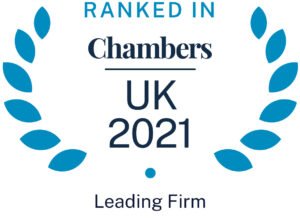Top judge says parents need to be persuaded not to bring childcare cases to court as family courts are having to “run up a down escalator” to keep pace with unprecedented increases in childcare cases, the most senior family judge in England and Wales has said.
Launching a review of the overburdened system, Sir Andrew McFarlane, president of the family division, said some parents needed to be persuaded not to bring claims to court in order to reduce the pressure.
Cuts to legal aid had also resulted in an influx of “litigants in person”, exposing district judges and magistrates to the fury of unrepresented and “emotionally charged” claimants who had sometimes posed a security risk, Mr Justice Cobb, who is in charge of private family law, acknowledged.
Sounding the alarm over the state of the family courts, McFarlane said it was not clear why, but the volume of childcare cases had increased significantly since the beginning of 2016 and there was no sign of it falling back.
Guardian Today: the headlines, the analysis, the debate – sent direct to you
Read more
The number of “public law” applications for care or supervision orders – made by social services departments across England and Wales – has risen by about 25% over that period.
The number of “private law” applications – made by parents over their own children – has also been rising and is at an all-time high. Last year, there were 53,164 new private law cases lodged involving 123,334 children.
“The system is … trying to run up a down escalator,” McFarlane said ahead of the launch of a public consultation on the family courts. “Everyone is working flat-out but delays are creeping into the system.”
One aim of his review is to identify childcare cases that could be resolved through mediation or dispute resolution. About a quarter or a third of the cases do not involve issues of domestic violence and raise no concern about the safety of a child. “They would be better dealt with persuading the parents not to come to court,” McFarlane said.
He accepted that there was unlikely to be any new money for extra court resources and is therefore proposing revenue-neutral changes to improve the efficiency of the court rather than far-reaching changes to the law.
A report of the private family law working group headed by Cobb recommended that family justice boards around the country should create alliances of services “to provide integrated support for all families experiencing separation”.
Diverting “appropriate cases of conflictual family breakdown away from court” was sensible “not merely because the court system is stretched to breaking point (and beyond) by current case volumes”, the report noted, but because “out-of-court services will offer better solutions for many families whose differences are more amenable to negotiated or conciliated agreement”.
Referring to cuts to legal aid that have left many claimants in the family court unrepresented, Cobb said: “We have concerns about potential security in cases of this kind. Private law disputes are often highly emotionally charged … Judges are managing long lists with people for whom the court application [to gain access to or care of a child] is one of the most important things in their life. There are clearly security issues. It’s certainly a considerable issue for judges who deal with these cases.“
The public family law report, headed by Mr Justice Keehan, pointed out that there were extreme variations between local authority practices. In Cleveland and south Durham, councils made 304 applications for care orders per 100,000 children; in Swindon, the rate was 45 applications per 100,000.
The consultation will run from Wednesday until 30 September 2019.
Read the original story on The Guardian website.








